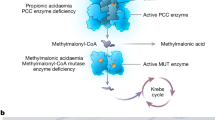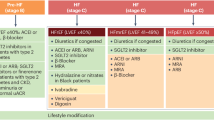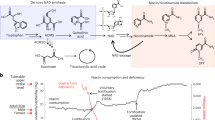Abstract
Patients bearing polymorphisms termed CYP2C19 loss of function (LoF) alleles and ABCB1-C3435T may do not properly respond to standard dosage of clopidogrel and have an increased risk of thrombosis. Moreover, co-administration of proton pump inhibitors (PPIs) and clopidogrel may attenuate the antiplatelet effect. The role of pharmacogenetics and PPIs/clopidogrel drug–drug interaction has been extensively investigated in patients with acute coronary syndrome after stent implantation (ACS/PCI), while data in patients undergoing vascular surgery are scarce. Here we have performed a systematic review to evaluate the available literature in such a clinical setting and have discussed the controversies about the use of CYP2C19 pharmacogenetics and platelet function testing to personalize clopidogrel treatment. In addition, we have made a comparison of the literature data with our findings concerning patients eligible for vascular surgery and treated with clopidogrel, in whom we used a combined management based on the CYP2C19 and ABCB1 pharmacogenetic testing with monitoring of therapeutic adherence and PPIs–clopidogrel interaction. Both our data and those produced during both observational studies and randomized clinical trials confirm the validity of pharmacogenetics to personalize clopidogrel treatment and stress the importance to make a drug monitoring considering all the known variables, potentially responsible for treatment failure. However, the American Heart Association and the European Cardiovascular Society recommend against the routine use of clopidogrel pharmacogenetic testing. An update of the international guidelines on antiplatelet therapy, incorporating the evidence related to CYP2C19 pharmacogenetics and PPIs–clopidogrel drug–drug interactions is warranted both in ACS/PCI patients and subjects undergoing vascular surgery.
This is a preview of subscription content, access via your institution
Access options
Subscribe to this journal
Receive 6 print issues and online access
$259.00 per year
only $43.17 per issue
Buy this article
- Purchase on Springer Link
- Instant access to full article PDF
Prices may be subject to local taxes which are calculated during checkout




Similar content being viewed by others
References
Kheiri B, Osman M, Abdalla A, Haykal T, Swaid B, Ahmed S. Clopidogrel and aspirin after ischemic stroke or transient ischemic attack: an updated systematic review and meta-analysis of randomized clinical trials. J Thromb Thrombolysis. 2019;47:233–247.
Al-Husein BA, Al-Azzam SI, Alzoubi KH, Khabour OF, Nusair MB, Alzayadeen S. Investigating the effect of demographics, clinical characteristics, and polymorphism of MDR-1, CYP1A2, CYP3A4, and CYP3A5 on clopidogrel resistance. J Cardiovasc Pharmacol. 2018;72:296–302.
Manzo V, Tarallo S, Iannaccone T, Costantino M, Filippelli W, Filippelli A. Cardiovascular pharmacogenomics. Curr Pharmacogenomics Personalized Med. 2017;15:1–14.
Tcheng JE, Mackay SM. Prasugrel versus clopidogrel antiplatelet therapy after acute coronary syndrome: matching treatments with patients. Am J Cardiovasc Drugs. 2012;12:83–91. 1
Wallentin L, Becker RC, Budaj A, Cannon CP, Emanuelsson H, Held C, et al. Ticagrelor versus clopidogrel in patients with acute coronary syndromes. N Engl J Med. 2009;361:1045–57. 10
Mega JL, Close SL, Wiviott SD, Shen L, Hockett RD, Brandt JT, et al. Cytochrome P450 genetic polymorphisms and the response to prasugrel: relationship to pharmacokinetic, pharmacodynamic, and clinical outcomes. Circulation. 2009;119:2553–60. 19
Eusebi LH, Rabitti S, Artesiani ML, Gelli D, Montagnani M, Zagari RM, et al. Proton pump inhibitors: risks of long-term use. J Gastroenterol Hepatol. 2017;32:1295–1302.
Ho PM, Maddox TM, Wang L, Fihn SD, Jesse RL, Peterson ED, et al. Risk of adverse outcomes associated with concomitant use of clopidogrel and proton pump inhibitors following acute coronary syndrome. JAMA. 2009;301:937–44.
Muntner P, Mann DM, Woodward M, Choi JW, Stoler RC, Shimbo D. et al. Predictors of low clopidogrel adherence following percutaneous coronary intervention. Am J Cardiol. 2011;108:822–827. 15.
Scott SA, Sangkuhl K, Stein CM, Hulot JS, Mega JL, Roden DM, et al. Clinical Pharmacogenetics Implementation Consortium guidelines for CYP2C19 genotype and clopidogrel therapy: 2013 update. Clin Pharmacol Ther. 2013;94:317–23.
Scott SA, Sangkuhl K, Shuldiner AR, Hulot JS, Thorn CF, Altman RB, et al. PharmGKB summary: very important pharmacogene information for cytochrome P450, family 2, subfamily C, polypeptide 19. Pharmacogenet Genomics. 2012;22:159–65.
Dean L. Clopidogrel therapy and CYP2C19 Genotype. SourceMedical Genetics Summaries. Bethesda (MD): National Center for Biotechnology Information (US). 2012.
Collet JP, Hulot JS, Anzaha G, Pena A, Chastre T, Caron C. et al. High doses of clopidogrel to overcome genetic resistance: the randomized crossover CLOVIS-2 (Clopidogrel and Response Variability Investigation Study. JACC Cardiovasc Interv. 2011;4:392–402.
Taubert D, von Beckerath N, Grimberg G, Lazar A, Jung N, Goeser T, et al. Impact of P-glycoprotein on clopidogrel absorption. Clin Pharm Ther. 2006;80:486–501.
Galeazzi R, Olivieri F, Spazzafumo L, Rose G, Montesanto A, Giovagnetti S, et al. Clustering of ABCB1 and CYP2C19 genetic variants predicts risk of major bleeding and thrombotic events in elderly patients with acute coronary syndrome receiving dual antiplatelet therapy with aspirin and clopidogrel. Drugs Aging. 2018;35:649–656.
Al-Qazaz HKH, Hassali MA, Shafie AA, Sulaiman SA, Sundram S, Morisky DE, et al. The eight-item Morisky medication adherence scale MMAS: translation and validation of the Malaysian version. Diabetes Res Clin Pract. 2010;90:216–21.
Shamseer L, Moher D, Clarke M, Ghersi D, Liberati A, Petticrew M, et al. PRISMA-P Group. Preferred reporting items for systematic review and meta-analysis protocols (PRISMA-P) 2015: elaboration and explanation. BMJ. 2015;350:g7647.
Wiviott SD, Trenk D, Frelinger AL, O'Donoghue M, Neumann FJ, Michelson AD, et al. Prasugrel compared with high loading- and maintenance-dose clopidogrel in patients with planned percutaneous coronary intervention: the Prasugrel in Comparison to Clopidogrel for Inhibition of Platelet Activation and Aggregation-Thrombolysis in Myocardial Infarction 44 trial. Circulation. 2007;116:2923–32. 18
Roberts DI, Nawarskas JJ. Treatment options for patients with poor clopidogrel response. Cardiol Rev. 2013;21:309–17.
Roden DM, Stein CM. Clopidogrel and the concept of high-risk pharmacokinetics. Circulation. 2009;119:2127–30.
Mazzaccara C, Conti V, Liguori R, Simeon V, Toriello M, Severini A, et al. Warfarin anticoagulant therapy: a Southern Italy pharmacogenetics-based dosing model. PLoS ONE. 2013;8:e71505. 26
Hulot JS, Bura A, Villard E, Azizi M, Remones V, Goyenvalle C, et al. Cytochrome P450 2C19 loss-of-function polymorphism is a major determinant of clopidogrel responsiveness in healthy subjects. Blood. 2006;108:2244–7.
Shuldiner AR, O’Connell JR, Bliden KP, Gandhi A, Ryan K, Horenstein RB, et al. Association of cytochrome P450 2C19 genotype with the antiplatelet effect and clinical efficacy of clopidogrel therapy. JAMA. 2009;302:849–57.
Johnson JA, Caudle KE, Gong L, Whirl-Carrillo M, Stein CM, Scott SA, et al. Clinical Pharmacogenetics Implementation Consortium (CPIC) Guideline for Pharmacogenetics-Guided Warfarin Dosing: 2017 Update. Clin Pharmacol Ther. 2017;102:397–404.
González A, Moniche F, Cayuela A, García-Lozano JR, Torrecillas F, Escudero-Martínez I, et al. Effect of CYP2C19 polymorphisms on the platelet response to clopidogrel and influence on the effect of high versus standard dose clopidogrel in carotid artery stenting. Eur J Vasc Endovasc Surg. 2016;51:175–86.
Lee J, Cheng N, Tai H, Juang JJ, Wu C, Lin L, et al. CYP2C19 polymorphism is associated with amputation rates in patients taking clopidogrel after endovascular intervention for critical limb ischaemia. Eur J Vasc Endovasc Surg. 2019;58:373–382.
Backovic D, Ignjatovic S, Rakicevic L, Novkovic M, Kusic-Tisma J, Radojkovic D, et al. Clopidogrel high on-treatment platelet reactivity in patients with carotid artery stenosis undergoing endarterectomy. a pilot study. Curr Vasc Pharmacol. 2016;14:563–569.
Leunissen TC, Peeters Weem SMO, Urbanus RT, den Ruijter HM, Moll FL, Asselbergs FW, et al. High on-treatment platelet reactivity in peripheral arterial disease: a pilot study to find the optimal test and cut off values. Eur J Vasc Endovasc Surg. 2016;52:198–204.
Guo B, Tan Q, Guo D, Shi Z, Zhang C, Guo W. Patients carrying CYP2C19 loss of function alleles have a reduced response to clopidogrel therapy and a greater risk of in-stent restenosis after endovascular treatment of lower extremity peripheral arterial disease. J Vasc Surg. 2014;60:993–1001.
Díaz-Villamarín X, Dávila-Fajardo CL, Martínez-González LJ, Carmona-Sáez P, Sánchez-Ramos J, Álvarez Cubero MJ, et al. Genetic polymorphisms influence on the response to clopidogrel in peripheral artery disease patients following percutaneous transluminal angioplasty. Pharmacogenomics. 2016;17:1327–38.
US FDA: Clopidogrel Prescribing Information. 2018. www.accessdata.fda.gov/drugsatfda_docs/label/2018/020839s070lbl.pdf.
https://www.ema.europa.eu/en/documents/product-information/plavix-epar-product-information_it.pdf.
AIFA-Inibitori di Pompa Protonica e Clopidogrel. 2009. www.gazzettaufficiale.it/eli/gu/2009/10/13/238/sg/pdf.
Laine L, Hennekens C. Proton pump inhibitor and clopidogrel interaction: fact or fiction? Am J Gastroenterol. 2010;105:34–41.
Sharma RK, Reddy HK, Sharma RK, Moazazi M, Elango L, Singh VN, et al. The interaction between clopidogrel and proton pump inhibitors (PPI): is there any clinical relevance? Clin Pharmacol. 2010;2:155–62.
Shah NH, LePendu P, Bauer-Mehren A, Ghebremariam YT, Iyer SV, Marcus J et al. Proton pump inhibitor usage and the risk of myocardial infarction in the general population. PLoS ONE. 2015;10:e0124653.
Hsieh CF, Huang WF, Chiang YT, Chen CY. Effects of clopidogrel and proton pump inhibitors on cardiovascular events in patients with type 2 diabetes mellitus after drug-eluting stent implantation: A Nationwide Cohort Study. PLoS ONE. 2015;10:e0135915.
Aradi D, Komócsi A, Price MJ, Cuisset T, Ari H, Hazarbasanov D, et al. Tailored antiplatelet treatment study collaboration. efficacy and safety of intensified antiplatelet therapy on the basis of platelet reactivity testing in patients after percutaneous coronary intervention: systematic review and meta-analysis. Int J Cardiol. 2013;167:2140–8.
Helten C, Naguib D, Dannenberg L, Pöhl M, Ayhan A, Hohlfeld T, et al. Platelet function testing: dead or alive. J Thromb Haemost. 2018;16:984–6.
Komosa A, Siller-Matula JM, Lesiak M, Michalak M, Kowal J, Mączyński M, et al. Association between high on-treatment platelet reactivity and occurrence of cerebral ischemic events in patients undergoing percutaneous coronary intervention. Thromb Res. 2016;138:49–54.
Siller-Matula JM, Francesconi M, Dechant C, Jilma B, Maurer G, Delle-Karth G, et al. Personalized antiplatelet treatment after percutaneous coronary intervention: the MADONNA study. Int J Cardiol. 2013;167:2018–23.
Hazarbasanov D, Velchev V, Finkov B, Postadjian A, Kostov E, Rifai N, et al. Tailoring clopidogrel dose according to multiple electrode aggregometry decreases the rate of ischemic complications after percutaneous coronary intervention. J Thromb Thrombolysis. 2012;34:85–90.
Sibbing D, Aradi D, Jacobshagen C, Gross L, Trenk D, Geisler T, et al. TROPICAL-ACS Investigators. Guided de-escalation of antiplatelet treatment in patients with acute coronary syndrome undergoing percutaneous coronary intervention (TROPICAL-ACS): a randomised, open-label, multicentre trial. Lancet. 2017;390:1747–57.
Tantry US, Bonello L, Aradi D, Price MJ, Jeong YH, Angiolillo DJ, et al. Working Group on On-Treatment Platelet Reactivity. Consensus and update on the definition of on-treatment platelet reactivity to adenosine diphosphate associated with ischemia and bleeding. J Am Coll Cardiol. 2013;62:2261–73.
Moon JY, Franchi F, Rollini F, RivasRios JR, Kureti M, Cavallari LH, et al. Role of genetic testing in patients undergoing percutaneous coronary intervention. Expert Rev Clin Pharmacol. 2018;11:151–64.
Roffi M, Patrono C, Collet JP, Mueller C, Valgimigli M, Andreotti F, et al. ESC scientific document group. 2015 ESC guidelines for the management of acute coronary syndromes in patients presenting without persistent ST-segment elevation: task force for the management of acute coronary syndromes in patients presenting without persistent ST-segment elevation of the european society of cardiology (ESC). Eur Heart J. 2016;37:267–315.
Antman EM, Wiviott SD, Murphy SA, Voitk J, Hasin Y, Widimsky P, et al. Early and late benefits of prasugrel in patients with acute coronary syndromes undergoing percutaneous coronary intervention: a TRITON-TIMI 38 (TRial to assess improvement in therapeutic outcomes by optimizing platelet inhibitioN with prasugrel-thrombolysis in myocardial Infarction) analysis. J Am Coll Cardiol. 2008;51:2028–33.
Cuisset T, Loosveld M, Morange PE, Quilici J, Moro PJ, Saut N, et al. CYP2C19*2 and *17 alleles have a significant impact on platelet response and bleeding risk in patients treated with prasugrel after acute coronary syndrome. JACC Cardiovasc Interv. 2012;5:1280–7.
Michelson AD, Frelinger AL, Braunwald E, Downey WE, Angiolillo DJ, Xenopoulos NP, et al. Pharmacodynamic assessment of platelet inhibition by prasugrel vs. clopidogrel in the TRITON-TIMI 38 trial. Eur Heart J. 2009;30:1753–63.
Angiolillo DJ1, Badimon JJ, Saucedo JF, Frelinger AL, Michelson AD, Jakubowski JA, et al. A pharmacodynamics comparison of prasugrel vs. high-dose clopidogrel in patients with type 2 diabetes mellitus and coronary artery disease: results of the Optimizing anti-Platelet Therapy In diabetes MellitUS (OPTIMUS)-3 trial. Eur Heart J. 2011;32:838–46.
Frére C, Cuisset T, Gaborit B, Alessi MC, Hulot JS. The CYP2C19*17 allele is associated with better platelet response to clopidogrel in patients admitted for non-ST acute coronary syndrome. J Thromb Haemost. 2009;7:1409–11.
Huang B, Cui DJ, Ren Y, Han B, Yang DP, Zhao X, et al. Effect of cytochrome P450 2C19*17 allelic variant on cardiovascular and cerebrovascular outcomes in clopidogrel-treated patients: a systematic review and meta-analysis. J Res Med Sci. 2017;26:109.
Luzum JA, Cheung JC. Does cardiology hold pharmacogenetics to an inconsistent standard? A comparison of evidence among recommendations. Pharmacogenomics. 2018;19:1203–16.
Xie X, Ma YT, Yang YN, Li XM, Zheng YY, Ma X, et al. Personalized antiplatelet therapy according to CYP2C19 genotype after percutaneous coronary intervention: a randomized control trial. Int J Cardiol. 2013;168:3736–40.
So DY, Wells GA, McPherson R, Labinaz M, Le May MR, Glover C, et al. A prospective randomized evaluation of a pharmacogenomic approach to antiplatelet therapy among patients with ST-elevation myocardial infarction: the RAPID STEMI study. Pharmacogenomics J. 2016;16:71–8.
Notarangelo FM, Maglietta G, Bevilacqua P, Cereda M, Merlini PA, Villani GQ, et al. Pharmacogenomic approach to selecting antiplatelet therapy in patients with acute coronary syndromes: the PHARMCLO trial. J Am Coll Cardiol. 2018;71:1869–77.
Claassens DMF, Vos GJA, Bergmeijer TO, Hermanides RS, van ‘t Hof AWJ. A genotype-guided strategy for oral P2Y12 inhibitors in primary PCI. N. Engl J Med. 2019;381:1621–31.
Kubica A, Obońska K, Fabiszak T, Kubica J. Adherence to antiplatelet treatment with P2Y12 receptor inhibitors is there anything we can do to improve it? A systematic review of randomized trials. Curr Med Res Opin. 2016;32:1441–51.
Forni Ogna V, Menetrey I, Muller O, Tousset E, Guihard L, Fontana P, et al. Effect of long-term adherence to clopidogrel on the VASP-PRI after elective coronary stent implantation: a randomized controlled study. Br J Clin Pharmacol. 2016;82:1486–97.
Acknowledgements
We thank the English mother tongue Jan Festa who carefully performed the language revision of the manuscript.
Author information
Authors and Affiliations
Corresponding author
Ethics declarations
Conflict of interest
The authors declare that they have no conflict of interest.
Additional information
Publisher’s note Springer Nature remains neutral with regard to jurisdictional claims in published maps and institutional affiliations.
Rights and permissions
About this article
Cite this article
Valeria, C., Carmine, S., Valentina, M. et al. The need of a multicomponent guiding approach to personalize clopidogrel treatment. Pharmacogenomics J 21, 116–127 (2021). https://doi.org/10.1038/s41397-020-00189-2
Received:
Revised:
Accepted:
Published:
Issue Date:
DOI: https://doi.org/10.1038/s41397-020-00189-2
This article is cited by
-
Cardiovascular Pharmacogenomics: An Update on Clinical Studies of Antithrombotic Drugs in Brazilian Patients
Molecular Diagnosis & Therapy (2021)



